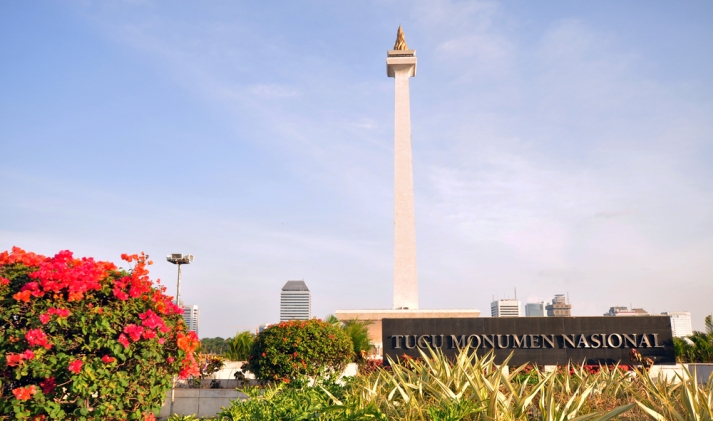
As the No. 1 online-shopping website in Russia and Brazil, according to SimilarWeb, AliExpress has the BRIC countries pretty well covered.
Now AliExpress—an online marketplace that specializes in the sale of Chinese-made goods directly to consumers all over the world but with an emphasis on emerging markets—is going after the “I” in the MINT countries: Indonesia. AliExpress recently struck cooperation agreements involving Indonesia’s top e-payments provider as well as regional logistics companies, deals that aim at enhancing the online-shopping experience for consumers in the world’s fourth most-populous nation.
With more than 70 million Internet users, a group that is expected to grow to more than 100 million in the next several years, “Indonesia is one of the countries with big potential” for online shopping, said Mulyono, who heads up AliExpress in the country and who like many Indonesians uses a single name. As in other emerging economies, the spending power of Indonesians is growing faster than the country’s backwards retail infrastructure, making the Internet a likely place for the country’s consumers to turn to for greater choice and affordable products.
It is still “very early” for e-commerce in his home country, Mulyono says. There is no clear leader in online shopping websites (AliExpress has cracked the top 10, according to SimilarWeb), electronic payment methods are not widespread, and getting goods ordered online delivered quickly to consumers’ doors is challenging.
These are issues AliExpress and its parent company, e-commerce giant Alibaba Group, have set out to address.Announced today,an AliExpress cooperation with DOKU, Indonesia’s leading e-payment solutions provider, Indonesian consumers can now select DOKU as a payment gateway and pay in rupiah for AliExpress products through online channels such as DOKU Wallet and Mandiri Clickpay. Consumers will also be able to make offline e-payments at more than 9,000 Alfa Group convenient stores located throughout the country.
Read how China’s consumer electronics brands areselling globallywith AliExpress
Meanwhile, China Smart Logistics, the China-based shipping and logistics-information consortium that supports the delivery of AliExpress orders, will cooperate with Singapore Post and its partner in Indonesia, Indo Post, to enable faster delivery from China to Jakarta. Beginning this month, Indonesian buyers can now expect their packages arrive within two weeks, much faster compared to over 35 days previously, according to AliExpress. Alibaba Group owns 48% of China Smart Logistics and is a stakeholder in Singapore Post.
AliExpress is able to compete effectively against existing domestic shopping websites in part because the site is part of Alibaba Group’s e-commerce ecosystem, which means it can provide end-to-end online shopping solutions including delivery and e-payment, Mulyono said. This is important in a country where shopping on the Internet is still an unknown proposition to most consumers. “It’s much safer and more convenient to buy things on our platform if you compare with local competitors,” Mulyono said.
AliExpress in December launched a localized version of its website where Indonesians can now shop in their home language and in English, choosing from a range of products that have been selected to appeal to local preferences. AliExpress also established a customer-service line where shoppers can speak with company representatives in Bahasa and English.
The site’s main advantage, he added, is the depth of mostly Chinese-made products, such as the latest fashion apparel and consumer electronics, that are available from the AliExpress marketplace at prices that are affordable in an emerging economy. “A lot of these products you cannot find in Indonesia, or if you try to find it through traditional retailers, you will have to wait for two or three months,” he said.
Mulyono stressed that AliExpress is not just a platform that allows Chinese retailers and manufacturers to sell direct to consumers worldwide. As the site becomes established in Indonesia, the company plans to add Indonesian merchants and manufacturers to the seller mix. With the world’s largest Muslim population, Indonesia could tap AliExpress to sell products such as Halal food to other countries, he said. The country also has a growing manufacturing base, with companies including Chinese OEM manufacturer Foxconn and appliance maker Haier setting up factories in the country.
“The vision of AliExpress is all about being a global-to-global platform,” Mulyono said.
To raise awareness of online shopping, AliExpress on Jan. 26 kicked off a series of special promotions for Indonesian shoppers, among them 24-hour flash sales on locally popular items such as mobile phones, wearable gadgets, home entertainment and beauty products. AliExpress merchants are also offering deep discounts on more than 1,000 products that are top sellers worldwide as well as locally produced everyday goods such as Indonesian snacks. AliExpress also teamed up with domestic companies Bank BNI, Line Instant Messaging and KaKao Talk to provide cash coupons for consumers shopping on the site.




